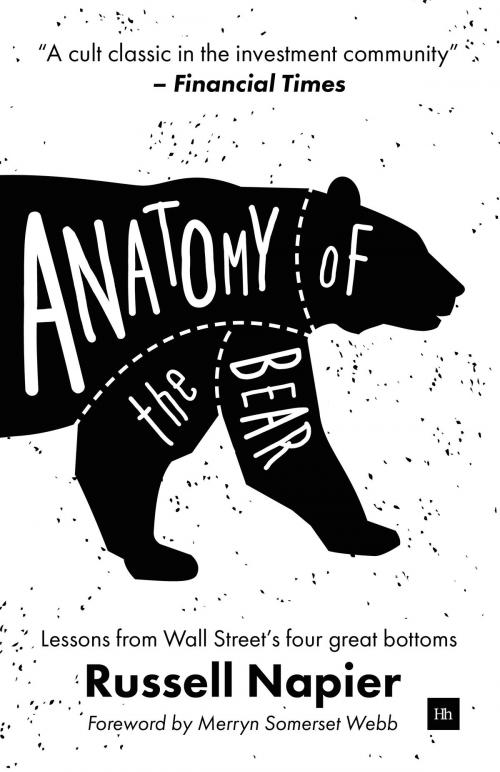Anatomy of the Bear
Lessons from Wall Street's four great bottoms
Business & Finance, Finance & Investing, Investments & Securities| Author: | Russell Napier, Merryn Somerset Webb | ISBN: | 9780857195234 |
| Publisher: | Harriman House | Publication: | January 18, 2016 |
| Imprint: | Harriman House | Language: | English |
| Author: | Russell Napier, Merryn Somerset Webb |
| ISBN: | 9780857195234 |
| Publisher: | Harriman House |
| Publication: | January 18, 2016 |
| Imprint: | Harriman House |
| Language: | English |
How does one spot the bottom of a bear market? What brings a bear to its end? There are few more important questions to be answered in modern finance. Financial market history is a guide to understanding the future. Looking at the four occasions when US equities were particularly cheap - 1921, 1932, 1949 and 1982 - Russell Napier sets out to answer these questions by analysing every article in the Wall Street Journal from either side of the market bottom. In the 70,000 articles he examines, one begins to understand the features which indicate that a great buying opportunity is emerging. By looking at how markets really did work in these bear-market bottoms, rather than theorising how they should work, Napier offers investors a financial field guide to making the best provisions for the future. This fourth edition includes a brand new preface from the author and a foreword by Merryn Somerset Webb.
How does one spot the bottom of a bear market? What brings a bear to its end? There are few more important questions to be answered in modern finance. Financial market history is a guide to understanding the future. Looking at the four occasions when US equities were particularly cheap - 1921, 1932, 1949 and 1982 - Russell Napier sets out to answer these questions by analysing every article in the Wall Street Journal from either side of the market bottom. In the 70,000 articles he examines, one begins to understand the features which indicate that a great buying opportunity is emerging. By looking at how markets really did work in these bear-market bottoms, rather than theorising how they should work, Napier offers investors a financial field guide to making the best provisions for the future. This fourth edition includes a brand new preface from the author and a foreword by Merryn Somerset Webb.















